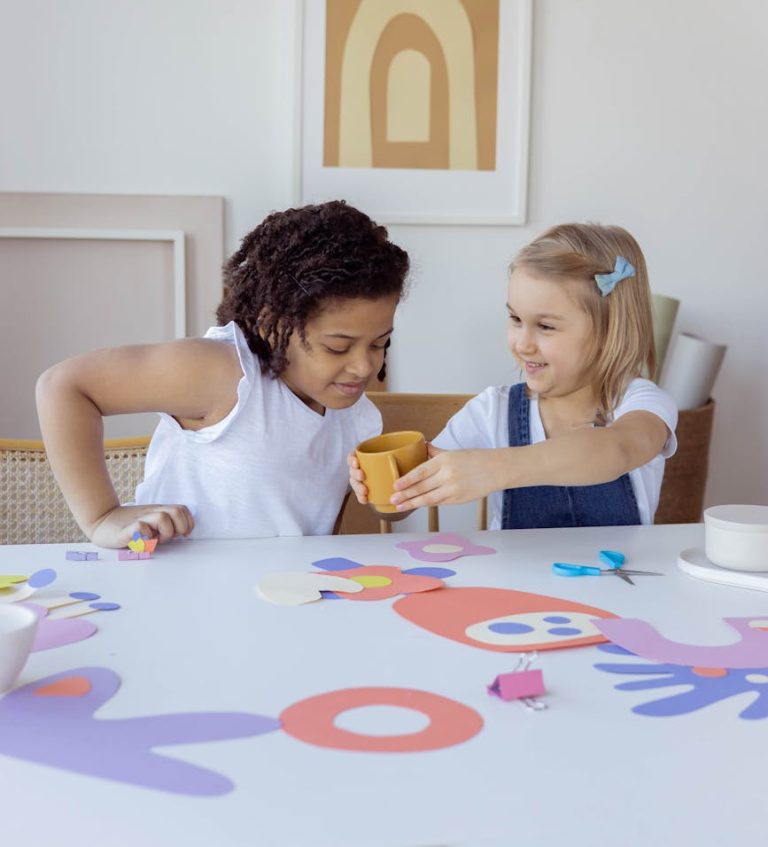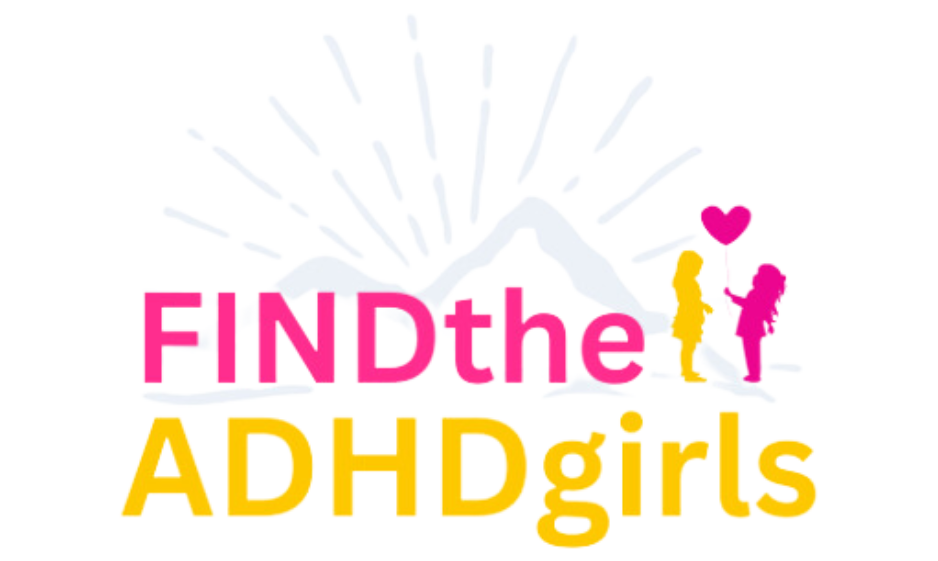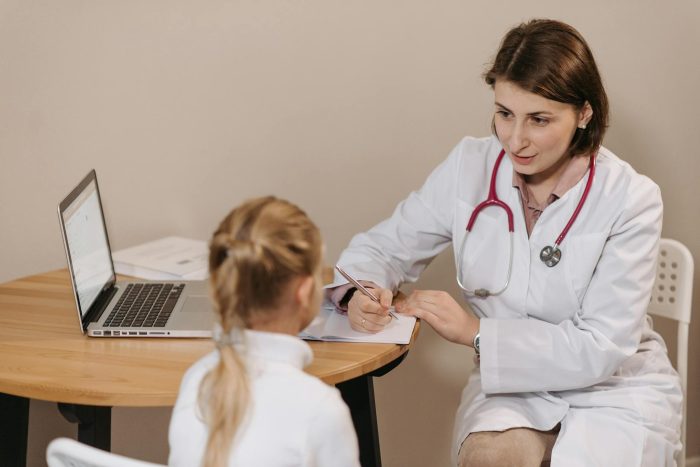ADHD and stimulant medications
Attention-Deficit/Hyperactivity Disorder, or ADHD, affects millions of children around the world. Girls with ADHD have trouble focusing and can be hyperactive or impulsive as well. Not only do her symptoms affect everything in her life, they impact your whole family. However, stimulant medications can help your ADHD daughter thrive and improve your home life.
In this blog, we simplify stimulant medications and separate fact from fiction. We’ll answer common questions and concerns. When you have all the facts, you can make the best decision about your daughter’s ADHD treatment. Let’s jump in!
What are stimulant medications?
Stimulant medications are a controlled class of drugs that reduce symptoms of ADHD. They are the first line in ADHD treatment, and for good reason. Nearly 80% of children with ADHD who take stimulants show improvements in ADHD symptoms. In fact, stimulants have the highest response rate of any other psychiatric medication. Taking them as prescribed cuts down on ADHD symptoms, such as interrupting conversations or blurting out answers. They also improve focus, attention span, and memory.
How do stimulant medications work?
Stimulants raise levels of certain chemical messengers. Research shows that ADHD brains don’t have enough of those chemicals, and that’s why stimulants work so well. They normalize those levels. In essence, stimulants put ADHD brains on a level playing field with non-ADHD brains.
Check out this video of Dr. Russell Barkley talking about the effects of stimulants on ADHD children. Dr. Barkley is a clinical neuropsychologist and an ADHD expert.
Stimulant medications: types
Some common stimulant medications include:
- Ritalin
- Adderall
- Vyvanse
- Methylin
- Metadate
- Focalin
- Concerta
Stimulant medications fall into 2 categories: methylphenidates and amphetamines. They can be short-acting or long-acting. Short-acting drugs, like Ritalin, take effect in 30 to 60 minutes and last 4-6 hours. The effects of longer-acting stimulants such as Vyvanse can last up to 16 hours. The doctor will prescribe medication depending on your daughter’s needs and response.
Short-acting stimulant medications
With shorter-acting medications, you have more control over the amount. But you have to take them more often. That can be inconvenient and hard to remember. Short-acting medications can also cause rebound moodiness when they wear off. Finally, she may feel singled out or stigmatized by classmates for leaving class to get medication in the middle of the day.
Long-acting stimulant medications
On the other hand, long-acting stimulants are only taken once a day. These medications help reduce the common ups and downs of short-acting medicines. You can also be sure she takes it. The downside is that long-acting stimulants can be more expensive than quick-acting ones. Still, many of them are covered by insurance.
Finding the Right Medication
Her doctor will start her on medication and see how she reacts. This won’t take a long time. You’re on the right track if her symptoms are getting better and she doesn’t have side effects. Keep in mind that stimulants should improve her function, not change how she feels. Trying both classes, methylphenidates and amphetamines, can be helpful. Sometimes she’ll respond much better to one class than the other.
The Rule, capital T, capital R, The Rule is that if you have the right medication at the right dose, you should see dramatic improvement without side effects.”
~~Dr. William Dodson, MD, ADHD specialist
About 20% of children don’t respond to stimulants. If your daughter is one of them, her doctor may try a non-stimulant medication. There are a few FDA-approved medications for ADHD, like Intuniv and Strattera. They can be helpful if stimulants don’t work. But, if her doctor starts her on one of these to begin, ask them about it. They may have a good reason for the decision, but these medications aren’t a first-line treatment for ADHD. So, be sure to ask why the doctor chose it.
Adjusting the dose
For stimulant medications, you’re looking for the “sweet spot.” This is the dose where she gets 100% of the medication benefits without any side effects. To get there as quickly as possible, work closely with her doctor. Let them know what you’re seeing and how she’s feeling. They’ll adjust or titrate the medication as needed.
Helpful hints to monitor medication effects
Awareness helps you recognize the connection between medication and symptoms. In other words, is the medication making a difference? Pick a few behaviors to monitor. This will help track medication effects. For example, is your daughter more easily frustrated if she hasn’t taken her medication? Jot it down. These notes can help determine medication effectiveness, especially when differences in her behavior are subtle.
If her symptom aren’t improving and she has no side effects, she may need a higher dose or a different medicine. But if she acts dazed or “zombie-like,” then her dose might be too high. Let her doctor know so they can help. Titration is a process, but the benefits are well worth it.
Benefits of stimulant medication for ADHD
Short-term benefits: symptom improvement
Stimulants take effect quickly, and some benefits are apparent immediately. First of all, you’ll see her ADHD behaviors improve. For one thing, stimulants make executive functioning skills easier. Your daughter will learn and process information more effectively. Because she’s no longer fighting her brain, she’s better able to concentrate and remember things. Her coping skills will improve, and facing minor challenges won’t be as hard.

She’ll also have more control over her impulses. She’s less likely to interrupt conversations or blurt out answers. She’ll have an easier time in social situations and her relationships with other children may improve.
Long-term benefits: brain growth and improved neuroplasticity
Neuroplasticity is the ability of your brain’s neural network to learn and adapt over time. As you grow, necessary and useful connections are strengthened with repetition. By your teenage years, the brain starts pruning connections it doesn’t need, which improves the ability to think and focus.
However, in ADHD, neural pruning doesn’t happen when it should or like it should. Your brain depends on certain processes and connections to function efficiently. Like Goldilocks and the Three Bears, it must be just right. And that isn’t the case with ADHD. Right now, studies can’t pinpoint exactly what differences in the brain cause ADHD symptoms, just that the differences exist. In effect, that different wiring makes decisions and focus difficult for children with ADHD.
Research shows that stimulant medications help normalize the connectivity in ADHD brains. Brain imaging studies on children taking stimulants showed brain development and function typical of non-ADHD or normal brains. In fact, the longer an ADHD child takes stimulants, the more normal the brain appears. Similar studies on ADHD adults showed some positive changes in the brain. But it was nowhere near the improvement seen in kids. To put it another way, these findings indicate that stimulants are neuroprotective and have the biggest benefit when started in childhood.
“I think the word neuroprotective is much bigger and more important than it might seem. Neuroprotective means the difference between a brain not developing normally and a brain developing at least more normally, possibly, actually, normally.”
~~Oren Mason, MD, ADHD specialist
Reduced Risk of Poor Future Outcomes
Girls with ADHD have a high risk of future problems, especially if they are undiagnosed or untreated. They are more likely to drop out of school, self-harm, and attempt suicide. Their risk of unplanned pregnancy and partner violence goes up.
“You find any malady of the human condition, and not treating ADHD will quadruple your risk of a bad outcome.”
~~ Dr. William Dodson, MD, ADHD specialist
ADHD girls also have an increased risk of substance abuse. Girls with untreated ADHD may take illicit drugs or drink alcohol to feel “normal” or numb. You’d think taking stimulant medication would increase the risk. But it doesn’t. On the contrary, it can reduce the risk. With medication, it’s easier for her to make friends and fit in. Her life isn’t on hard mode any longer. This combination of treatment and a strong support system increases her likelihood of a positive outcome.
“Once they get proper treatment, it just opens up everything. It enables them to be the person that they’ve wanted to be, rather than the retiring, struggling person who’s feeling so badly about themselves.”
~~Mary Ann Richey, M.E.d, school psychologist

Are stimulant medications addictive?
Yes and no. Stimulants are controlled drugs, and people can misuse them. People without ADHD may take stimulants to try to enhance their performance or help them stay awake. Because they already have adequate chemical levels in their brain, increasing these chemicals alters how they feel. In other words, if you have a normal brain, stimulants will make you feel “high” or euphoric.
However, that doesn’t happen when someone has ADHD. Stimulants used in the treatment of ADHD bring the brain to a more normal state, not a euphoric one. So, stimulants aren’t found to be habit-forming when used to treat ADHD. And the length of use doesn’t change this. In fact, studies indicate there is no increased risk of substance abuse for ADHD children on stimulant medication. On the contrary, using stimulants for ADHD may reduce the risk of future substance abuse.
Side effects of stimulant medications
Of course, any medication can have side effects. But on the correct dose, side effects from stimulants are rare. But if you do see side effects, the most common are decreased appetite, weight loss, and trouble sleeping. Let’s take a look.
Common side effects
- Less hungry
- Weight loss
- Hard time sleeping
Less common side effects
- Blood pressure/heart rate changes: Taking stimulants can affect your blood pressure and heart rate. It’s usually a small change, but if your daughter has a heart problem, tell her provider. Regardless of an existing condition, they will check her blood pressure and pulse at each visit.
- Tics: Currently, there is no proof that taking stimulants causes tics. However, up to 50% of children with tic disorders have ADHD. Taking stimulants may aggravate tic disorders or make them more noticeable. So, if she has a history of tics or you see one start, let her doctor know. They may stop or switch her medicine.
Growth reduction: ADHD medication can cause her growth to be slower. But it’s a small delay, and she catches back up. According to the American Association of Pediatrics, there’s no link between final adult height and taking stimulants as a child.
Common Concerns
Will stimulants change her personality?
No, Stimulants won’t cause her personality to change. But they do cause a change in behavior. As her symptoms improve, she may seem different to you. It’s because she’s better able to function. She’s still the same girl; she’s just coping with life more easily.
Can we use natural methods to treat ADHD?
Can ADHD be treated naturally? Yes and no. There are ways to help improve ADHD symptoms without medications. Let’s look at a few.
Helpful Natural Methods to Treat ADHD
- Eating a well-balanced, healthy diet
- Getting plenty of exercise
- Consistent, quality rest
- Psychotherapy
- Behavior training
- ADHD coaching

On the other hand, some alternative ADHD treatments are questionable. You don’t want to waste time or money on treatments that don’t work.
Ineffective or Unproven ADHD Treatments
- Hypnosis
- Biofeedback training
- Multi-vitamins or supplements
- Sugar reduction or special diets
- Herbal/homeopathic remedies
- Vision therapy
- Auditory/sensory integration therapy
Wrapping it up
In summary, stimulant medications are generally safe and effective for children with ADHD. They immediately decrease ADHD symptoms and improve functioning. Their benefits to the brain are long-term. And they don’t increase the risk of addiction or cause it.
Weigh potential benefits against your concerns, and use facts, not fear, when deciding on an ADHD treatment. And keep an open mind. Remember that ADHD is complex; finding the most effective treatment may take time along with trial and error. So, partner with your daughter and her doctor and stay persistent. Together, you’ll find the best treatment to put her on a path to lifelong success.
Need help finding a provider specializing in child ADHD? Check out this free resource for online ADHD providers!
Co-Authors
 Alex Alcon
Alex Alcon
Alex Alcon, RN, Freelance nurse content and copywriter, owner of RN2Pen LLC
 Cynthia Hammer, MSW
Cynthia Hammer, MSW
Cynthia Hammer, MSW, is an ADHD advocate helping girls get timely diagnoses. She’s the founder of FINDtheADHDgirls, Executive Director of the Inattentive ADHD Coalition, and author of Living with Inattentive ADHD.
Share via:

